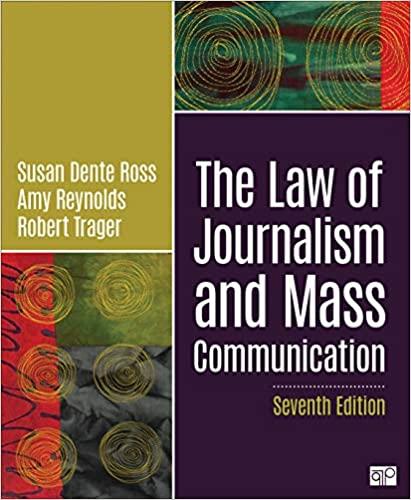Question
BUSINESS LAW: CONSIDERATION Billy runs a landscaping business. Emily has a garden and intends to host her nieces wedding in her garden on 14 June
BUSINESS LAW: CONSIDERATION
Billy runs a landscaping business. Emily has a garden and intends to host her nieces wedding in her garden on 14 June 2021. Emily hires Billy to landscape her garden for the wedding for RM50,000 on 10 April 2021. Billy promises to finish landscaping works by 31 May 2021. Billy commences work no later than 1 May 2021. On 13 May 2021, three of his workers are identified as Covid-19 positive. They are taken to a quarantine centre and won't be able to work. Billy informs Emily that he would be unable to finish the landscaping works by the date agreed because he has neither the finances to hire new workers nor to buy equipment to finish the work on his own. Emily, keen to proceed with the wedding plans, informs Billy that she would be willing to pay Billy an additional amount of RM40,000 if he finds a way to finish landscaping works by 31 May 2021. Billy agrees and obtains a loan for RM40,000 to buy the needed equipment to finish the works. He does so by 28 May 2021. Emily gives Billy a cheque for RM 50,000 and refuses to pay Billy the additional amount (RM 40,000) promised.
1. Define and explain what is meant by consideration.
2. Can Billy claim for the additional RM40,000. What cases and principles need be considered to determine if Billy would be successful?
BUSINESS LAW: EXCLUSION CLAUSE
Ranjit is a regular paying visitor to Thrillseekers Theme Park (TTP). On this particular visit, he breaks his arm when he is thrown from a ride because TTP has failed to properly maintain the safety belt. The camera he is holding is damaged beyond repair. When Ranjit seeks compensation, TTP denies liability. They highlight a clause printed on the back of his admission ticket and displayed on a notice at the ticket office which states:
Thrillseekers Theme Park accepts no liability for any loss or injury to visitors however this may arise.
1. Can Ranjit rely on the doctrine of incorporation to challenge the exclusion clause under Malaysian Law?
2. Can Ranjit rely on the doctrine of construction/interpretation to challenge the exclusion clause under Malaysian Law?
Step by Step Solution
There are 3 Steps involved in it
Step: 1

Get Instant Access to Expert-Tailored Solutions
See step-by-step solutions with expert insights and AI powered tools for academic success
Step: 2

Step: 3

Ace Your Homework with AI
Get the answers you need in no time with our AI-driven, step-by-step assistance
Get Started


